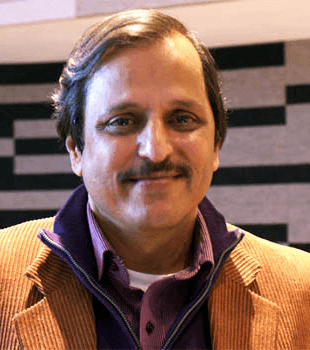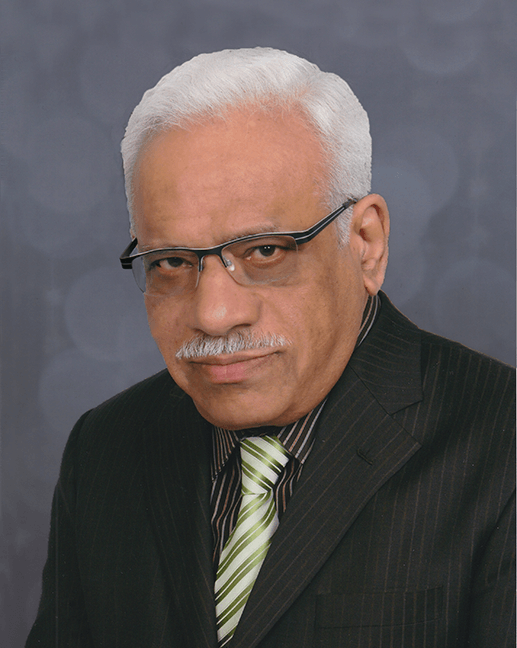Does the PTI government appear to be getting back on track during the second-half of its five-year term?

Senior journalist and analyst
For now, the PTI government is undergoing a period of self-assessment. After the Senate elections, we will get to determine whether it is back on course.
At present, PTI’s thin majority in the Senate makes it ill-equipped to perform optimally, as acquiring a hold on the Upper House is indispensable to running the government competently. However, even if the ruling PTI garners a large enough Senate majority, it may still become a hostage of traditional politics and get blackmailed by coalition parties; the incumbent government’s real test will kick off then.
The PTI was unable to deliver during the first half of its five-year term, maybe because its ministers were flabbergasted by their predecessors’ policies.
Former prime minister Nawaz Sharif focused on trade-oriented policies during his tenure, while Premier Imran Khan is encouraging increased production and industrialisation by banking on the textile and construction sectors. This approach is undeniably reaping better outcomes. Meanwhile, the fast-paced process of accountability also appears to be effective. It can be concluded that the PTI is warming up to get back on track.

Scholar & Analyst
The Pakistan Tehreek-e-Insaf (PTI) government is getting over hurdles, and it has certainly gotten over the worst. Inarguably, in December last year, the advent of the opposition’s Pakistan Democratic Movement (PDM) severely challenged the ruling PTI and did make them nervous. However, now the 11-party alliance appears to be dissipating.
All parties in the PDM miserably failed to mobilise the masses — the PML-N didn’t have any strong counter-narrative to corruption allegations and the ANP had a lacklustre showing in Khyber Pakhtunkhwa. Nevertheless, the PPP played its cards shrewdly and gave a real pushback to the PTI. With its far-seeing strategies, the Sindh government successfully barred the PTI government from making inroads in Karachi.
Despite many failed bids of the PDM to hinder Senate polls, the PTI is on its way to clinch the parliamentary majority. With the deep state’s support, PTI is growing politically potent and will continue to do so during its remaining term.
Nonetheless, on the economic front, the PTI seems to be going a bit off track with unabated food inflation and a consistent hike in petroleum prices. The federal government did take a few cosmetic measures to cushion the economy during the COVID-19 crisis. Most of them were politically unpopular decisions, but they unquestionably worked in the country’s favour. The macroeconomic indicators show positive outcomes, but sadly, they don’t translate into relief for the public. Thus, the government needs to deliver immediately on the microeconomic level.
Indeed, the PTI government passed the tests of COVID-19 and PDM with flying colours, but a monumental challenge of good governance and delivery still awaits them.

Senior Journalist & Analyst
The question in front of us implies that the PTI government was not on track in the first half of its term.
Fundamentally, the issue with Imran Khan’s government is the series of promises he made to the people. The PTI consistently claimed to have done all its homework before taking up the reins of governance. Consequently, the masses nurtured high expectations.
Nevertheless, among all the hype of bringing reforms and giving relief to the masses, the PTI failed to keep its promises. During the first half of its tenure, the masses readily allowed the government more time to deliver, and now during the second half, their hopes are flickering and the PTI’s underperformance in almost all sectors could not be more conspicuous.
In the second half of its term, the only area where the PTI sprang into a bit of action was Civil Reforms. Though the reforms seem good on paper so far, their execution will require at least two and a half years. This initiative may provide a straw of respite for the drowning public to clutch, as it sinks into the sea of unfulfilled promises.
Imran Khan’s politics orbits around accountability, but the National Accountability Bureau (NAB) has itself become controversial, as it targets only opposition leaders. The government must bring structural reforms to NAB, or else this tainted accountability process will severely cripple the PTI’s own politics.
If PM Khan does not provide significant relief to the masses in the times ahead, he will certainly be doomed. The only way he can earn the public’s trust is by delivering at least half of the promised reforms.

Senior Journalist & Analyst
Wobbling and stumbling, Prime Minister Imran Khan has crossed the halfway mark of his term only because he has been doubly lucky.
Firstly, his opposition is fragmented and nothing but a deceitful house of cards in which 11 political parties pull the applecart in 11 different directions. Secondly, the ragtag alliance, hustled together on a false premise, was wrong in assuming that Khan and his establishment backers would crumble.
Khan, who claims he is a fighter, did not surrender; the economy did not collapse altogether; his COVID-19 policy was a winner, and his political handling was too smart for the rattled opposition. He survived the crises and has arrived at a point where he can find himself gaining political and economic momentum.
After the Senate polls, when he expects to increase his parliamentary strength, Khan is ready to sweep the local bodies polls as he plans to offer a series of very lucrative political incentives — typical gifts like development funds, cash relief packages for all and seat adjustments with even disliked coalition partners.
He may then look like a compromised Khan, doing the same old unprincipled politics of the past, but in the maze he finds himself in, he has to climb down from his high moral pedestal for a while and develop enough muscle to impose his own political agenda and go for accountability across the board.
This very rosy scenario for the second half of his term is achievable, as he remains the only political option for the establishment, at least so far, as it faces multiple regional, international, and geostrategic challenges.
It is no time for a change of horses, and there does not appear to be another option as the others are widely discredited and running helter-skelter to salvage their money and political fortunes.



